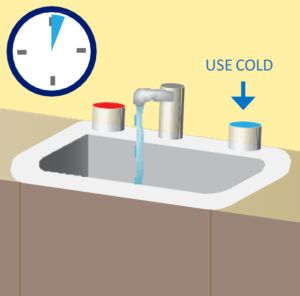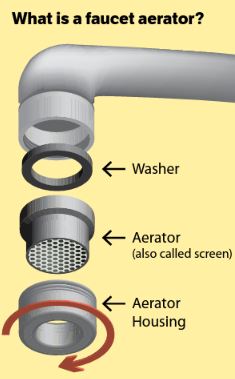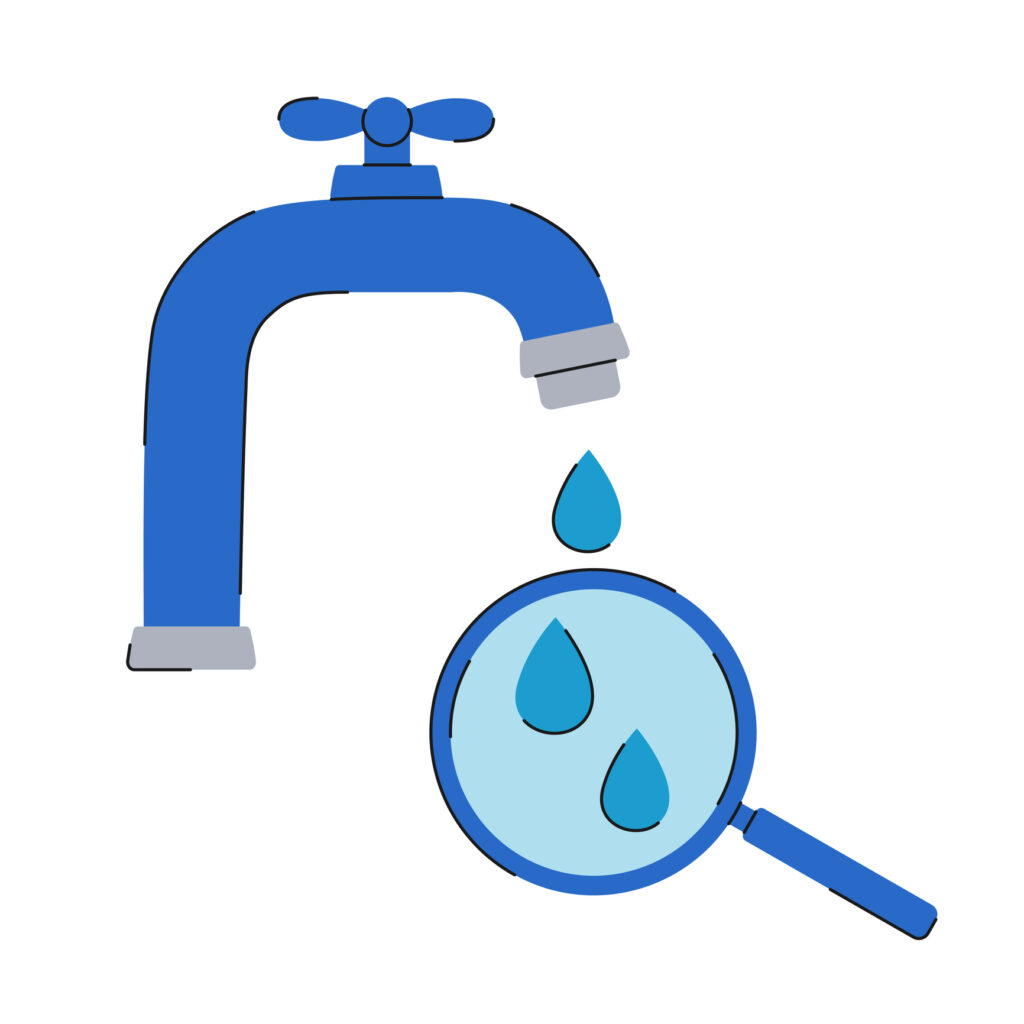Cleaning & Flushing Tips to Reduce Exposure to Lead
IMPORTANT HEALTH INFORMATION FOR HOMEOWNERS WITH LEAD PLUMBING:
The Lehigh County Authority water main system is virtually lead-free. If your home is connected to Lehigh County Authority (LCA) water main by a water distribution pipe that has sections made from lead, a toxic metal, it can impact your health. Follow the steps below to clean out your home plumbing until lead plumbing is replaced. Lead is harmful to everyone. Pregnant women and their unborn babies, infants and children under the age of six, and adults with high blood pressure and kidney problems are at the most risk.
IF YOU HAVE LEAD PIPES: Take steps to reduce the risk of lead exposure by following the steps outlined below.
Daily Rinsing:

Run cold water from your tap for at least three minutes. After that you will have fresh water from the LCA water main that is safe for drinking, cooking, making baby formula, feeding your pets, making ice, or watering vegetable gardens.
You can also bring in fresh water from the LCA water main by taking a shower, washing dishes, using the clothes washer, or flushing the toilets first.
Clean Faucet Aerators:

An aerator is a device attached to the tip of a faucet. It saves water, filters out debris, and prevents water from splashing. As water flows through the screen, it mixes with air and flows more evenly. As water stands in your home’s plumbing, lead from the soldered joints and old lead pipes can get into your water.
It is important to clean faucet aerators and screens to remove any debris that has built up. Clean all aerators once a month for 6 months, then twice a year, spring, and fall. You should also replace aerators each year. You can buy them at your local hardware or home improvement store.
Instructions for Cleaning Aerators: If your faucet has an aerator that you can take off, follow these easy steps:
- Place a rag in the sink drain in case you drop any pieces.
- If you need to use a wrench or pliers, wrap masking tape around the tips of the wrench or pliers, or on the aerator. Using tape will keep you from scratching the aerator.
- Unscrew the aerator.
- Separate each part—aerator housing, aerator and rubber washer.
- Remove small bits on the screen and other parts.
- Soak the parts in white vinegar for a few minutes.
- Scrub them with a brush.
- If the aerator and rubber washer are in poor condition, replace them.
- Put the aerator parts back together.
- Screw the aerator back onto the faucet.
- Repeat these steps for all faucets.
Have Water Tested for Lead:

Customers can have their water tested for lead by any certified laboratory of their choosing.